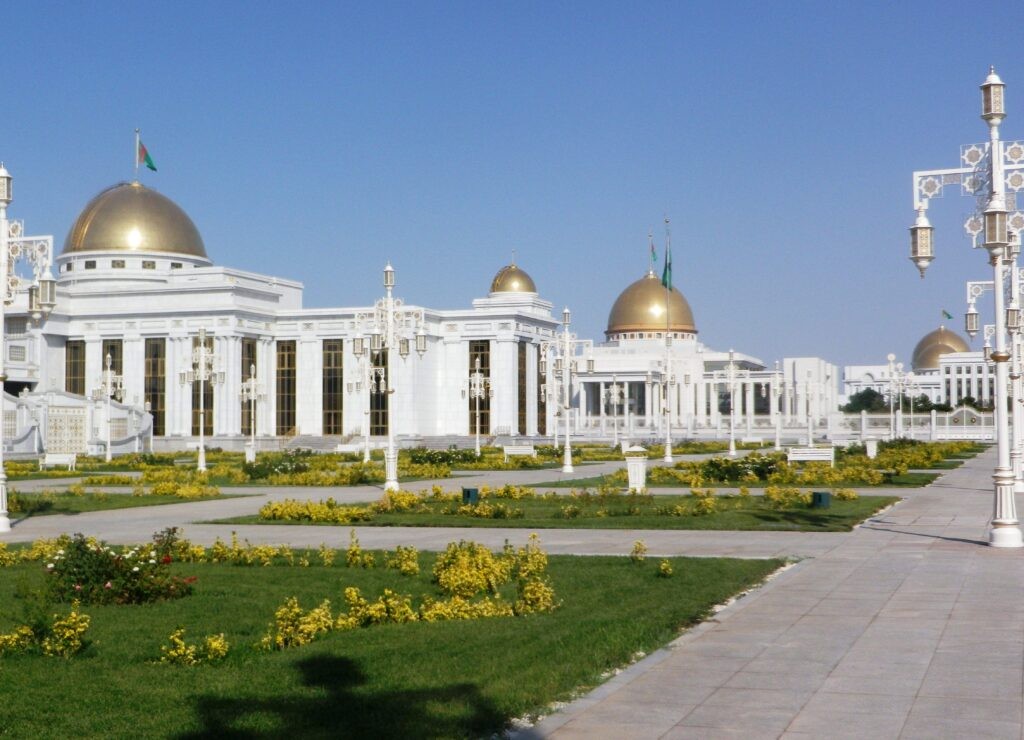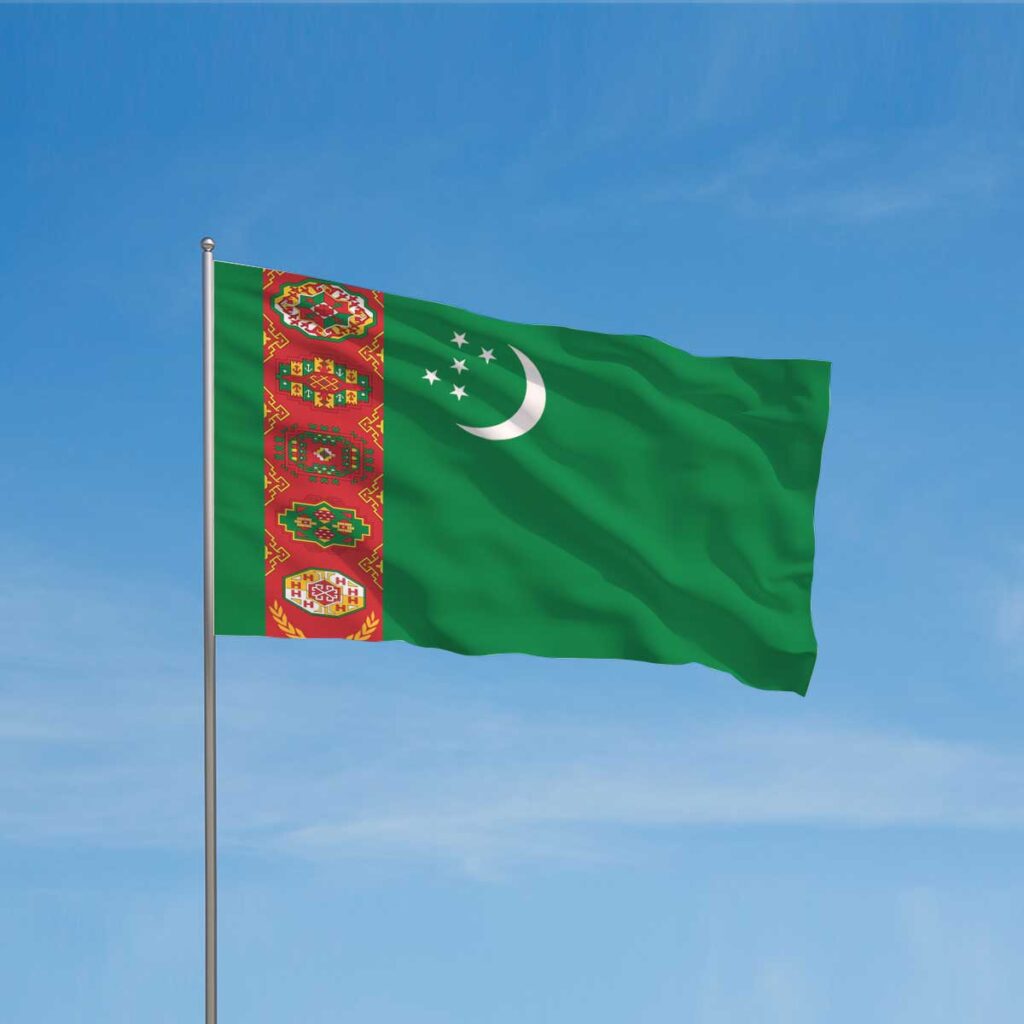Viewing results 91 - 96 of 94
Turkmenistan is taking strides in reforming its education sector with a particular focus on training diplomatic personnel. In line with this objective, the President of Turkmenistan has signed a resolution for the establishment of a Specialized Training Center “Diplomatic Protocol” at the Institute of International Relations (IIR) of the Ministry of Foreign Affairs. This initiative underscores the government's commitment to raising the standard of its diplomatic corps in accordance with international guidelines. The new training center will equip diplomats with the necessary skills and knowledge to navigate complex diplomatic protocols and effectively represent Turkmenistan in the global arena. The Ministry of Foreign Affairs, in collaboration with the Ministry of Adalat, has been tasked to prepare and present proposals within a month. These proposals will outline the necessary changes and additions to the existing legislation of Turkmenistan that are required to implement the President's resolution. The establishment of the Specialized Training Center “Diplomatic Protocol” is expected to further enhance the professional capabilities of Turkmen diplomats, fostering stronger international relations and facilitating more effective communication with their counterparts around the world.
On November 24th, the Mejlis of Turkmenistan, during its fourth meeting of the seventh convocation, unanimously adopted the Law "On the State Budget of Turkmenistan for 2024". The budget, which is based on comprehensive calculations backed by the state's financial capacity, aims to serve the interests of the people and their well-being. The session was chaired by President Serdar Berdimuhamedov, who addressed the priorities of the state policy. The meeting also considered several significant normative legal acts developed in line with the country's comprehensive program for the modernization of the legal framework. The main financial-legal document for local budgets in the forthcoming year was also discussed. The budget for 2024 is set to reach a total of 102,313.5 million Turkmen manat (US $ 29.23 billion), marking a significant increase from the previous year1. In addition to the 2024 budget, the Mejlis also unanimously adopted the Resolution "On the Implementation of the State Budget of Turkmenistan for 2022". The meeting further deliberated on several draft laws such as the "International Convention on Civil Liability for Damage from Bunker Fuel Pollution", "Amendments and Additions to Some Legislations of Turkmenistan", and "Protection of Objects of National Historical and Cultural Heritage". These legislative drafts were all unanimously approved and adopted. The adoption of the state budget for 2024 and the discussion of various legislative drafts underscore the government's commitment to modernizing the country's legal framework and boosting economic growth.
In a grand ceremony held in Ashgabat in mid-November, more than 20 agrarians were bestowed with state awards "For Love of the Fatherland" on behalf of President Serdar Berdimuhamedov. The event, which took place on the eve of the traditional harvest festival, recognized the significant contributions these agricultural workers have made towards the development of the industry. The award ceremony was held at the Turkmen Agricultural University, which also organized an exhibition showcasing cotton, wheat, fruits, and vegetables as part of the celebratory proceedings. The exhibits served not only as a testament to the hard work and dedication of the country's farmers but also highlighted the diversity and richness of Turkmenistan's agricultural sector. President Serdar Berdimuhamedov personally congratulated the awardees, emphasizing their crucial role in ensuring the country's food security. The harvest festival is an annual tradition in Turkmenistan, celebrated on the second Sunday of November. It is a day dedicated to honoring the country's farmers and recognizing their efforts in maintaining the nation's agricultural prosperity. This event underscores the government's commitment to appreciating and uplifting the agricultural sector, which plays a vital role in the country's economy and food security.
According to the website of the International Finance Corporation (IFC), the organization, a member of the World Bank Group, on October 9 said it has appointed Neil McKain as Country Manager for Uzbekistan and Turkmenistan. McKain will spearhead IFC's strategy and operations to spur private sector development and drive sustainable, inclusive economic growth in these countries. McKain will be based in Tashkent, Uzbekistan and will lead efforts to grow IFC's investment and advisory programs, overseeing their operation across sectors, and managing key relationships with clients, partners, and governments. A British national, McKain brings over 20 years of private sector development experience to his new role. He most recently served as Adviser to the Vice President, Banking, at the European Bank for Reconstruction and Development (EBRD). Prior to that, McKain was regional head for the EBRD in the Kyrgyz Republic, Tajikistan and Turkmenistan, spending 14 years in senior positions in the Caspian Basin and Central Asia. "I welcome Neil to this important role. I know his technical and leadership skills and knowledge of the region will help expand IFC's impact, generate new partnerships to meet the countries' needs, and build a strong foundation for a dynamic and inclusive private sector," said Wiebke Schloemer, IFC Director for Türkiye and Central Asia. "Increased private sector investment is critical to help Uzbekistan and Turkmenistan grow and diversify their economies and better harness their immense potentials," said McKain. "I'm excited to take up my new role and work with our partners in these countries to amplify IFC's support through private sector-led solutions." Before joining the EBRD in 1998, McKain started his professional career with A.T. Kearney in Russia working on post-privatization restructuring. He holds an MBA from the University of Cambridge and an MA in Political Science from the University of Aberdeen. His new role took effect on October 2.




